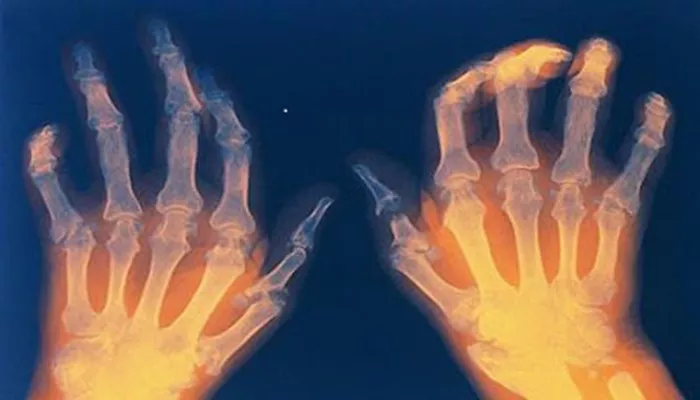A recent study has unveiled significant connections between oral bacteria and the worsening of rheumatoid arthritis (RA), a serious autoimmune disease that primarily affects the joints. While previous research has established a link between specific periodontal pathogens and RA, the underlying molecular mechanisms have remained largely unexplored.
This gap in knowledge has now been addressed by a research team from Tokyo Medical and Dental University (TMDU) in Japan, as detailed in their study published in the International Journal of Oral Science.
The researchers initiated their investigation by examining the effects of Aggregatibacter actinomycetemcomitans, a known periodontal pathogen, on arthritis in mice. They employed a collagen antibody-induced arthritis model, which simulates several characteristics of RA in humans. Their findings revealed that infection with this bacterium resulted in increased swelling in the limbs, significant cellular infiltration into the joint lining, and elevated levels of the inflammatory cytokine interleukin-1β (IL-1β) in the affected limbs.
Importantly, the study found that the symptoms associated with aggravated RA could be mitigated by administering clodronate, a chemical agent that depletes macrophages—immune cells implicated in inflammation. This indicated that macrophages play a crucial role in the exacerbation of RA linked to A. actinomycetemcomitans infection.
Further analysis using macrophages derived from mouse bone marrow showed that infection with A. actinomycetemcomitans led to increased IL-1β production. This, in turn, activated a multiprotein complex known as the inflammasome, which is essential for initiating and regulating the body’s inflammatory response to infections.
The researchers also utilized caspase-11-deficient mice to gain additional insights. In these mice, the activation of the inflammasome due to A. actinomycetemcomitans was suppressed, leading to less severe arthritis symptoms. This finding underscores the significant role of caspase-11 in the inflammatory process associated with RA.
Lead author Professor Toshihiko Suzuki emphasized the importance of these findings, stating, “Our research provides new insights into the link between periodontal pathogenic bacteria and the exacerbation of arthritis through inflammasome activation. This offers critical information regarding the long-debated relationship between periodontal disease and systemic diseases.”
This research highlights the intricate relationship between oral health and systemic conditions like rheumatoid arthritis, suggesting that managing periodontal health may be vital for individuals suffering from RA.


